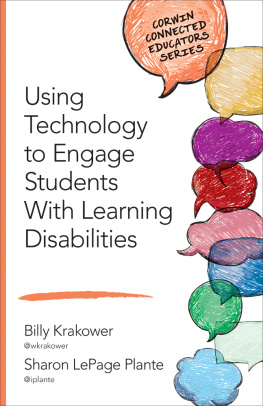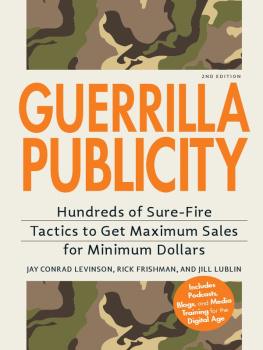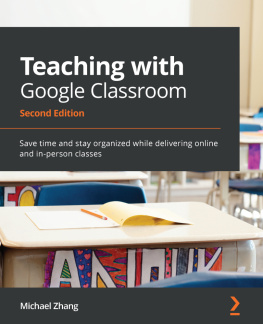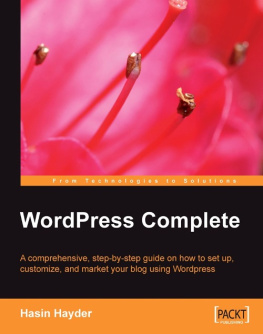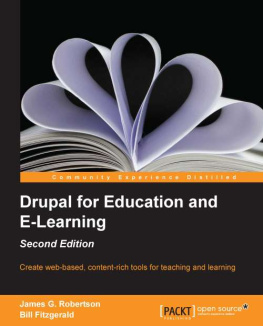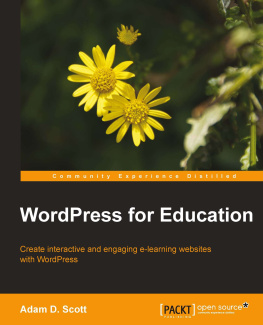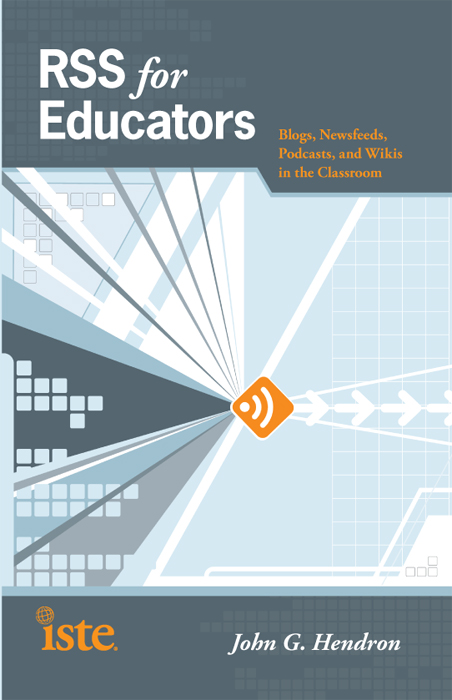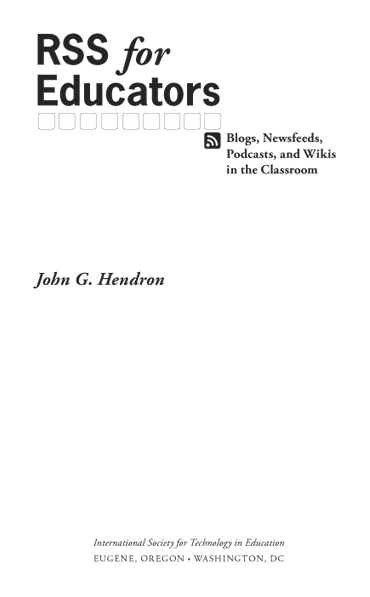RSS for Educators
Blogs, Newsfeeds, Podcasts, and Wikis in the Classroom
John G. Hendron
Copyright 2008 International Society for Technology in Education
World rights reserved. No part of this book may be reproduced or transmitted in any form or by any meanselectronic, mechanical, photocopying, recording, or by any information storage or retrieval systemwithout prior written permission from the publisher. Contact Permissions Editor, ISTE, 180 West 8th Ave., Suite 300, Eugene, OR 97401-2916; fax: 1.541.302.3780; e-mail: .
Director of Book Publishing: Courtney Burkholder
Acquisitions Editor: Jeff V. Bolkan
Production Editor: Lynda Gansel
Production Coordinator: Maddelyn High
Graphic Designer: Signe Landin
Copy Editor: Tim A. Taylor
Cover/Book Design and Production: Lindsay Starr
Indexer: Seth Maislin, Potomac Indexing LLC
Library of Congress Cataloging-in-Publication Data
Hendron, John G.
RSS for educators : blogs, newsfeeds, podcasts, and wikis in the classroom / John G. Hendron. 1st ed.
p. cm.
Includes bibliographical references and index.
ISBN-13: 978-1-56484-239-8 (pbk.)
1. Computer-assisted instruction. 2. Educational technology. 3. RSS feeds. I. Title.
LB1028.5.H39 2008
371.3344678dc22
2007048635
First Edition
ISBN: 978-1-56484-239-8
Printed in the United States of America
International Society for Technology in Education (ISTE)
Washington, DC, Office:
1710 Rhode Island Ave. NW, Suite 900, Washington, DC 20036-3132
Eugene, Oregon, Office:
180 West 8th Ave., Suite 300, Eugene, OR 97401-2916
Order Desk: 1.800.336.5191
Order Fax: 1.541.302.3778
Customer Service:
Book Publishing:
Rights and Permissions:
Web: www.iste.org
ABOUT ISTE
The International Society for Technology in Education (ISTE) is the trusted source for professional development, knowledge generation, advocacy, and leadership for innovation. A nonprofit membership association, ISTE provides leadership and service to improve teaching, learning, and school leadership by advancing the effective use of technology in PK12 and teacher education.
Home of the National Educational Technology Standards (NETS), the Center for Applied Research in Educational Technology (CARET), and the National Educational Computing Conference (NECC), ISTE represents more than 85,000 professionals worldwide. We support our members with information, networking opportunities, and guidance as they face the challenge of transforming education. To find out more about these and other ISTE initiatives, visit our Web site at www.iste.org.
As part of our mission, ISTE Book Publishing works with experienced educators to develop and produce practical resources for classroom teachers, teacher educators, and technology leaders. Every manuscript we select for publication is carefully peer-reviewed and professionally edited. We look for content that emphasizes the effective use of technology where it can make a differenceincreasing the productivity of teachers and administrators; helping students with unique learning styles, abilities, or backgrounds; collecting and .
ABOUT THE AUTHOR

John G. Hendron is a graduate of the University of Rochester, where he studied music at the Eastman School and anthropology and Spanish at the universitys College of Arts, Sciences, and Engineering. He became an accomplished conductor while pursuing graduate studies at Case Western Reserve University and performing with the University Circle Wind Ensemble at the Cleveland Institute of Music. Most recently, John earned a second graduate degree from Virginia Tech. His interests include gourmet cookery, photography, video editing, and baroque music. He has been employed since 1999 as a teacher and instructional technologist for Goochland County Public Schools in Virginia, and he freelances as a graphic and Web designer. In December, 2006, he received the Virginia State Technology Leadership Award from the Virginia Department of Education. He can be found online at www.johnhendron.net.
CONTENTS
PREFACE
I have been using computers for as long as I can remember. Growing up in the 1980s, I was fortunate to have access to computers in schools and at home, when programming had become a hobby. I was among a generation of those who not only turned in their middle-school writing assignments in the form of a print-out from a dot matrix printer, but who were also (like my friends and I) composing text on their computers. For many, the entire writing process became computer-based, despite this being a foreign way of doing things to our teachers. With this early exposure to computers, it should be no surprise that today I find myself passionately exploring emerging and exciting technologies. My own professional quest over the past eight years has been to explore how technology can make a difference in the lives of students and teachers.
My professional life has placed me in front of both educators and K12 students. I love the school environment. For anyone involved in the educational environment, the learning never stops. When I work with teachers in the role of an advocate or as a trainer, I am sometimes told, Well, this stuff is easy for you. Youre the computer guy. Ill never get this! First, I remind them about the importance of why we are spending time together. This technology is a part of the lives of your students, I say. Its a big and growing part of their culture. If were to reach students, we need to be conversant with that culture in a number of ways. Teachers are usually interested in what Ive said, but often still doubtful that technology can help them. Then I remind them, Remember, I was a music teacher. I wasnt born with microchips in my head. Technology is for everyone! My own enthusiasm for technology and the effects it now has on our lives typically carries us along during training.
During teacher training, theres never enough time to cover everything in sufficient detail for everyone. Thats one of the reasons I decided to write this bookso readers can take their time learning about a set of technologies that are already making a significant impact in the way we teach and the ways our students learn.
Over the past eight years, teachers have witnessed some very positive outcomes using computers in their schools. I have highlighted some of these throughout the book. The changes in pedagogy introduced in our schools are due in large part to trust among colleagues, a willingness to have fun, and a duty to help every one of our students succeed. I am indebted to many for the support I have received from colleagues in our local consortia, including the Greater Richmond Area Education Technology Council (GRAETC); from state-wide organizations, such as the Virginia Society for Technology in Education (VSTE); and especially indebted to our local technology team in Goochland County, Virginia (www.glnd.k12.va.us), including my supervisor Mr. Thomas DeWeerd and my colleagues and partners, Mr. Peter Martin, Mrs. Jennifer Bocrie, and Mr. Sean Campbell. Sharing a common vision and respect for one another, in addition to enjoying ones own profession, has been a rewarding experience for all of us.



